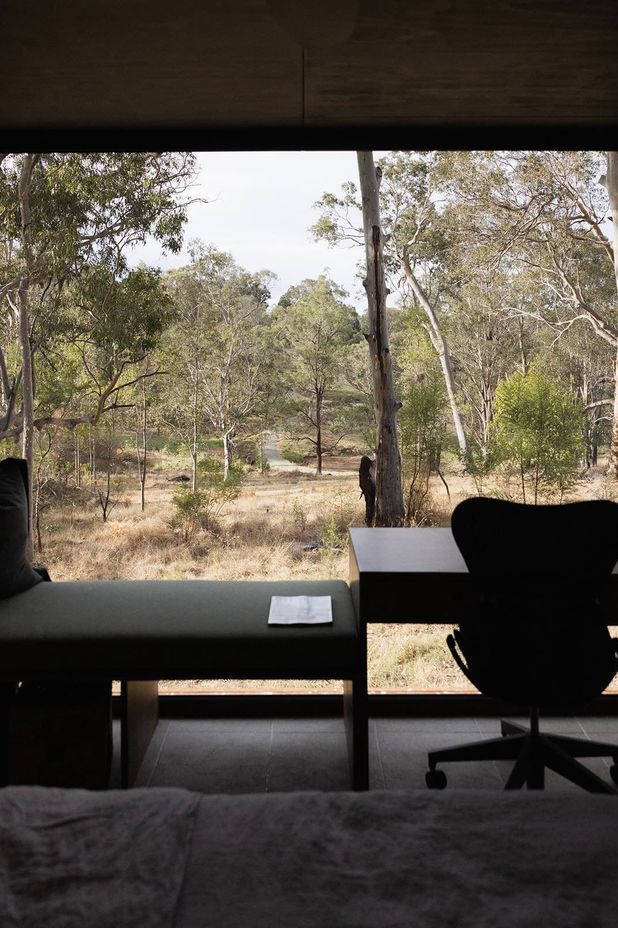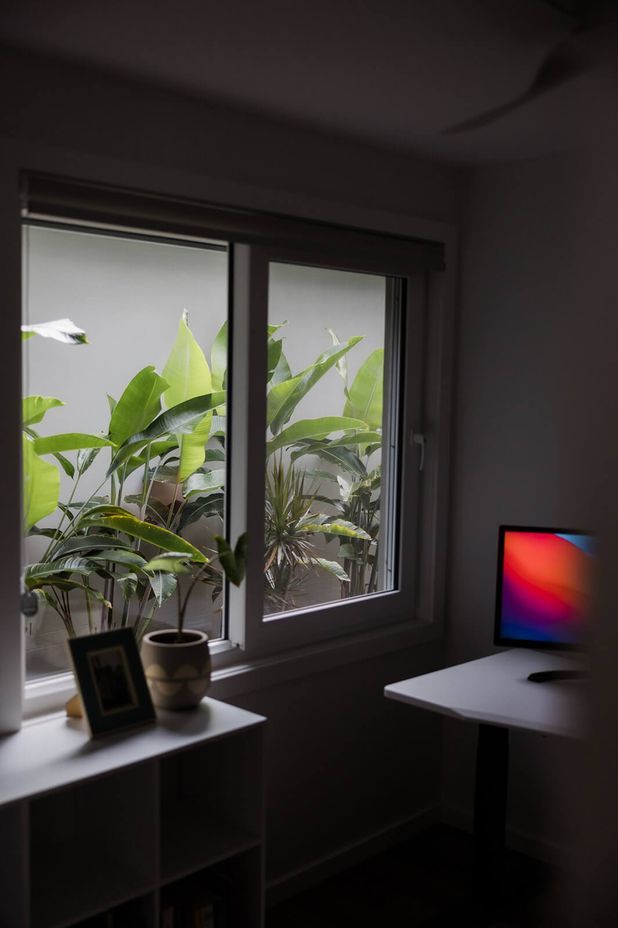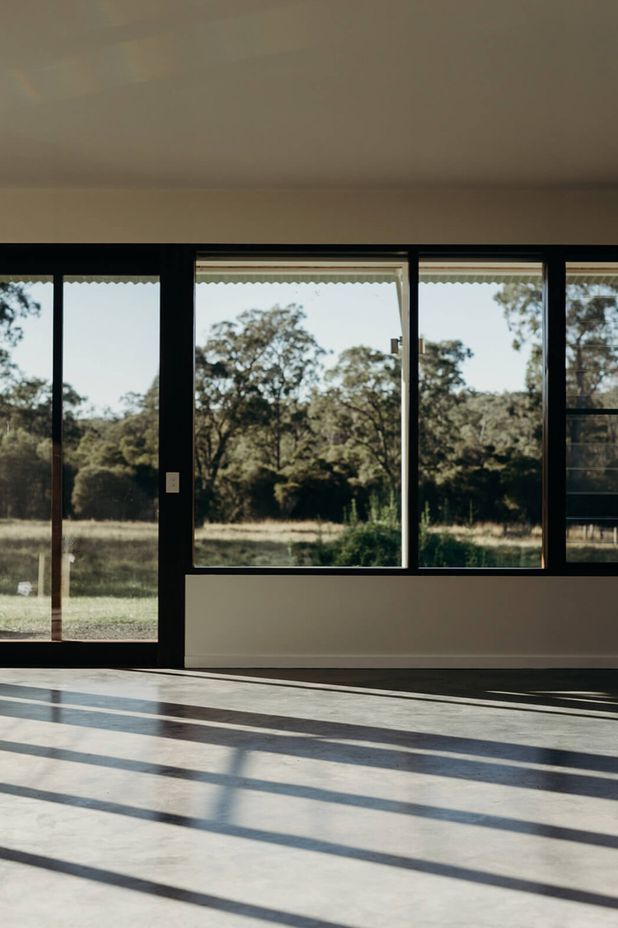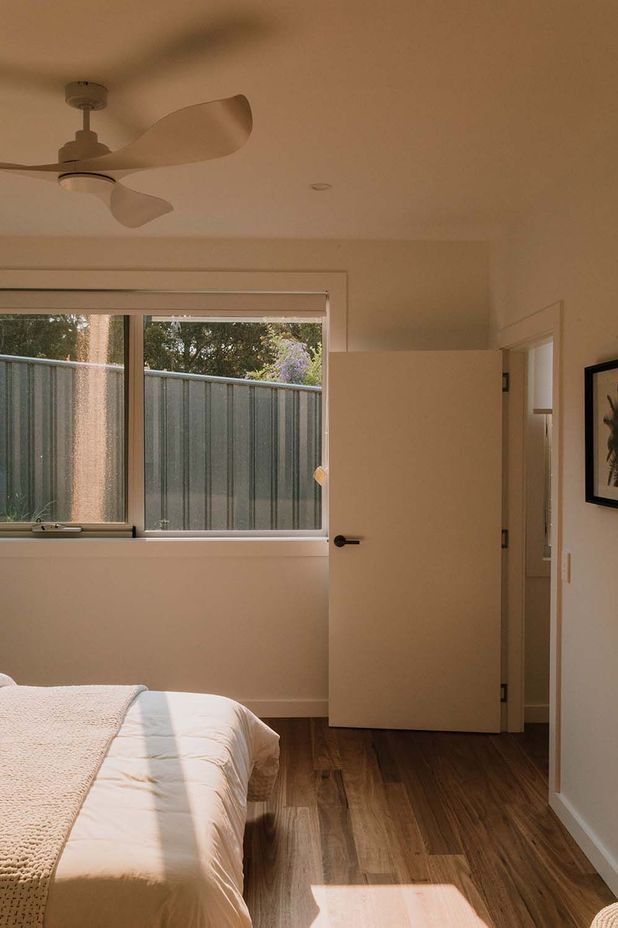Choosing the right window glazing for your energy efficient home

As sustainable home builders, we cannot emphasise enough that windows are very important to consider when designing or renovating your energy efficient home. They connect the inside with the outside and bring in natural beauty and light, but they also play a big role in the energy efficiency of your home, as they can be a big source of unwanted heat gain and loss.
Living in Australia means hot summers, cold winters and on top of that, extreme household energy prices. We all love a warm day on the beach, but sweltering inside because the cost of air conditioning is too high – not so great. As the cost of energy rises, electricity bills become a burden. And, with up to 40% of heat energy lost through your windows, improving your windows’ efficiency can reduce energy costs.
Single Vs Double: What’s The Difference?
As an eco-friendly builder on the Central Coast, we often talk about this. A single glazed window is simply a single pane of glass. This means the only thing separating your home from the outside environment is that pane of glass. Double glazed windows are made with two separate pieces of glass, separated by an air gap. The air gap is sealed and filled with gas, which increases the insulation between the glass pieces. When double glazed windows are retrofitted to an existing window installation, the energy efficiency can be improved by up to 80%, while factory made double glazed windows can be up to 100% more efficient than a single glazed equivalent.
Double or even triple-glazed windows are one way to cut your household energy costs. They keep extreme heat and cold outdoors, maintain a comfortable temperature inside, and even prevent dangerous mould growth – a common problem in Australia’s humid climates.
Are you keen to know more about double and triple glazed windows and if they’re the right choice for your more sustainable home? Building eco-friendly homes is our passion and we would love to share the advantages and disadvantages.


Five Advantages Of Double Glazed
1. Reduced heat loss and gain
The space between the two pieces of glass in a double glazed window acts as a thermal barrier between your home and the outside environment. This thermal barrier keeps the temperature inside your home more consistent and insulates the indoors from the full effects of outdoor temperatures. By naturally reducing your heat loss and gain, you can keep your home cooler in summer and warmer in winter – which is what we all want!
2. An energy efficient home
Reducing your heat loss and gain with double glazed windows, reduces your need for electrical temperature control, and therefore means you can use your heater and cooler less. As a result, double glazed windows can reduce your energy costs by more than 20% and ultimately adds up to enormous savings on energy. Find an eco-friendly builder in your area and they can advise you on the best options available.
3. Prevent mould forming indoors
As we mentioned above, Australia can be known for its’ humidity, and while we’re not against things getting a bit hot and steamy, this can cause some problems too. With humidity often comes condensation, and while condensation is generally just an annoyance, it does have the potential to cause severe mould problems for your home and therefore your health as well. Condensation occurs when the moist air inside your home is exposed to a cooler surface, such as a single glazed window. Double glazing reduces thermal conductivity, making your windows dry and warm. This means there’s no cold surface for the moist air to form condensation. And by reducing your condensation, you’re preventing mould from happening to begin with.
4. Reduce noise from outdoors
The space between the two glass panes doesn’t just insulate you from temperature extremes – it keeps noise at bay too. The air gap allows double glazed windows to absorb more sound energy than single glazed windows, and a difference in glass thickness between the inner and outer panes will improve sound reduction even further – what sounds better than a cosy, quiet home?
5. Safety and security
Double glazed windows improve safety and security too. Two panes of glass are a lot harder to break than one – so they are safer if you have small children, and also make break-and-enters a whole lot harder too. So your home is not only energy efficient but also safer!


Let’s Talk About The Disadvantages Too
The main disadvantage of a double glazed window is the expense. There’s no denying that they cost more than single glazed – however the cost of indoor temperature control should be taken in to consideration. Once you add the longer-term extra cost of temperature control to single glazed windows, they end up being the more expensive choice. So while the initial cost of installing double glazed windows is higher, they will eventually pay for themselves with lower energy costs and a positive environmental impact too. This is why it’s important to speak with sustainable home builders who see the bigger picture and long-term goals.
But What About Triple?
Triple glazing takes it up a notch and contains three panes of glass, instead of just one or two. The third pane of glass located between the inner and outer panes creates two air locks, which improves the energy performance of double glazing by around 50% – that’s one and a half times better than single glazing as well.
Should You Switch To Triple For A More Energy Efficient Home?
You’ll see basically the same advantages and disadvantages when comparing triple glazed to double glazed as we discussed with double vs single: they’re better at reducing heat loss and gain, are more energy efficient, reduce even more condensation and provide more noise reduction. With all this in mind, triple glazed windows can cost around 20% more than double, but the extra cost comes with better performance, so when you look at quality and comfort, you should consider triple glazed windows for the same reason you’d install underfloor heating: it’s just better.
Advice From A Sustainable Builder: What We Think At Lou Projects
Living in Australia usually means a home filled with sunlight and views of nature. It can also mean stinking hot summer days. To enjoy all that natural light and beauty, without compromising thermal efficiency, multi-glazed windows are the way to go.
It’s also important to remember that utilising multi-glazed windows works best as part of an integrated energy-saving approach to home energy efficiency. Having multi-glazed windows will only be partially effective if you still have draughts, or poor insulation. The window frames themselves have a large bearing on the overall performance, as well as insulation through your walls, floors and ceiling. Keep an eye out for our upcoming posts discussing all this and more!
